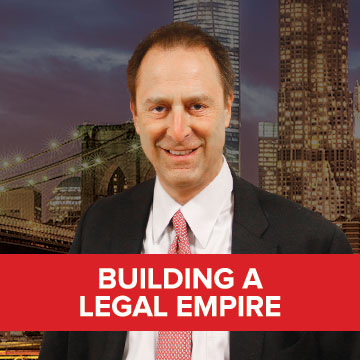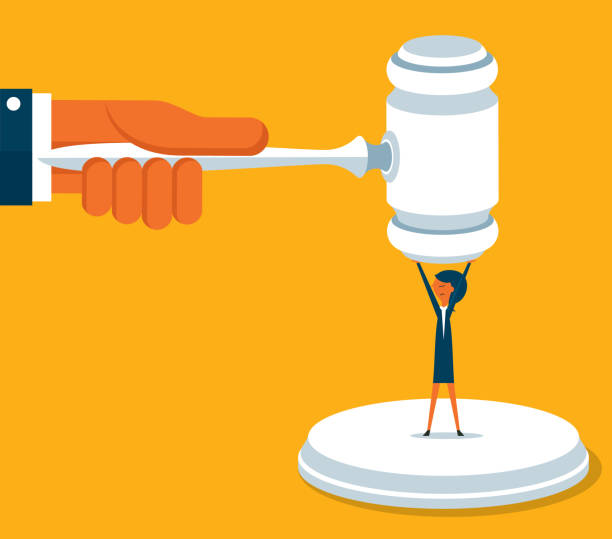Building a Successful Law Practice: How Michael Barasch Evolved His Firm to Meet the Needs of 9/11 First Responders

This interview with Michael Barasch of the New York law firm of Barasch McGarry Salzman & Penson, is the second in a continuing series of interviews with attorneys who have successfully grown their legal practice into a business empire.
Despite a résumé that includes tireless advocacy for the legal rights of 9/11 victims and first responders, attorney Michael Barasch of New York-based personal injury firm Barasch McGarry Salzman & Penson admits that becoming a lawyer was a “total accident.”
“I went to law school only because I couldn’t think of anything else to do with my history degree,” he says.
After completing his undergraduate studies at Swarthmore College, Barasch moved to New York City, where he enrolled at Fordham University School of Law with hopes of eventually working for his father’s insurance brokerage firm. As a law student, Barasch interned at a personal injury law firm and had the opportunity to watch one of the partners try cases. That led to a change of plans.
“It seemed like so much fun,” Barasch says. “So, after graduation, instead of going to work in the insurance business, I told my dad that I wanted to try cases for a year to get some practical legal experience.”
Once Barasch passed the New York bar exam, a firm partner let him try “dozens” of cases. Barasch realized he loved advocating for his clients in and out of the courtroom. But, “I was frustrated because older, more experienced lawyers would take advantage of my inexperience during trials,” Barasch says. “However, I learned the tricks of the trade — the stuff they don’t teach in law school — from those veteran trial attorneys. Before long, I found myself winning cases that I had no business winning. That’s really when I decided that I would stick with the law.”
As his career began to take off, he found that his lack of grey hair was also holding him back. “The most frustrating thing for me was that sometimes when I tried to sign up a new, big case, the potential client would hire another attorney just because the competition was older. They didn’t seem to care as much about the success that I was having in the courtroom.” Barasch decided to stick with the first firm that hired him, continuing to gain the trial experience he needed and signing up cases through his grey-haired bosses. After six years, Barasch decided to strike out on his own. He joined forces with another veteran attorney who specialized in representing injured railroad workers. Then, as fate would have it, in 1994 he ran into former law school classmate Jim McGarry in the subway. Jim had connections to NYC firefighters, and Mike and Jim chose to open up their own firm, representing NYC’s Bravest. Soon thereafter, attorneys Barry Salzman, Dom Penson, and Bruce Kaye joined the firm, resulting in what is now Barasch McGarry Salzman & Penson.
9/11: The day that changed everything
From its beginnings, the firm routinely represented firefighters and police officers injured in the line of duty, and that representation remains a cornerstone of its personal injury practice to this day. But on September 11, 2001, the depth and breadth of the firm’s connection to New York City’s Bravest and Finest intensified.
“My firm was representing injured New York City firefighters and police officers before the World Trade Center attacks, and so advocating for 9/11 responders was a natural fit for us,” Barasch says.
Several months after the attacks, Barasch met with Kenneth Feinberg, who was appointed the Special Master of the federal government’s September 11th Victim Compensation Fund (VCF). Barasch presented medical evidence, air samplings, and witnesses. After the meeting, Feinberg changed the fund’s rules to cover injured first responders for their latent respiratory illnesses. In 2011, Congress passed the Zadroga Health & Compensation Act, named in honor of the firm’s client NYPD Detective James Zadroga. Det. Zadroga was diagnosed with pulmonary fibrosis and tragically died in 2006. An autopsy discovered ground glass and a host of carcinogens in his lungs. This was the evidence that the medical community needed to link severe pulmonary illnesses and cancers to the toxic dust created by the attacks. However, the Act was due to expire in October 2016.
Working with union leaders, 9/11 advocates and his firm’s 10,000 clients, Barasch lobbied Congress to extend the Zadroga VCF. In December 2015, Congress renewed the VCF for five more years, to December 18, 2020. It also extended the health program for 70 years.

The firm currently represents more than 2,000 clients with cancer. “I don’t think residents, office workers and responders are going to stop getting cancer when the VCF closes in 2020,” Barasch said. “Something tells me that we will have to return to Washington — armed with new medical statistics — to get it extended again.”
More than fifteen years after the attacks, the firm continues to receive new calls every day from responders, local residents and office workers whose illnesses have been linked to WTC toxic dust exposure. In fact, the WTC Health Program has now linked 68 cancers to those toxins.
“It is a privilege to be able to help so many people,” Barasch says. “I’m honored to represent the 9/11 community.”









